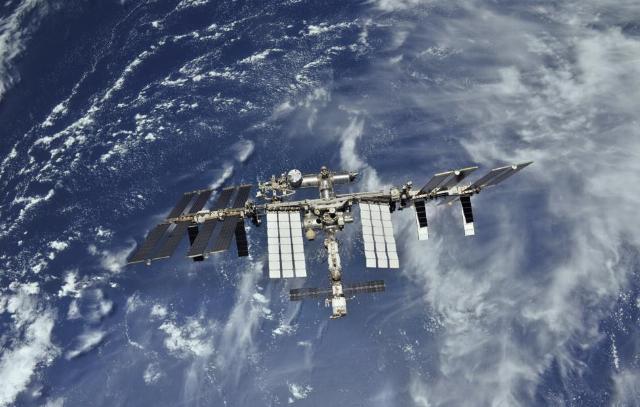The development belongs to scientists of the Moscow Aviation Institute
MOSCOW, July 14th. /tass/. Scientists at the Moscow Aviation Institute (MAI) have created a pulsed plasma injector to study the changes that occur in the ionosphere after the use of electric rocket engines. The equipment has already been delivered to the International Space Station (ISS), and research will begin in the fall, the university's press service told TASS.
"Thousands of electric-powered spacecraft are already flying around the Earth and ejecting charged particles. These particles collide with the ionosphere, which is also charged. This experiment will help scientists from the Institute of Terrestrial Magnetism, Ionosphere and Radio Wave Propagation of the Russian Academy of Sciences, which is its customer, to understand how plasma moves in the upper atmosphere, how artificially created plasma clumps and electric current that appear along the Earth's magnetic lines are formed and how long there are. In addition, it will be possible to assess what maximum impact a person can have on the ionosphere," said Alexander Bogatyi, Deputy director of the MAI Scientific Research Institute of Applied Mechanics and Electrodynamics, whose words are quoted in the message.
The press service clarified that the study will allow scientists to better understand how natural and man-made processes change the near-Earth environment and affect people's lives and communications (power grids, radio, telecommunications, navigation). In addition, important research issues are the creation of new means of communication and the fight against the electrification of spacecraft - the accumulation of electrostatic charge on their surface.
"Electrical discharges can cause malfunctions in electronics, communication and navigation systems, severe overheating of some elements and even physical damage (craters, erosion) on the surface of materials. Their occurrence poses a danger to the health and life of astronauts and leads to distortion of measurements, making scientific data inaccurate or useless," Bogatyi added.
About the device
The injector is one of two units of the IPI-500 scientific equipment complex, which also includes a special unit for monitoring electrophysical parameters developed by NPO IT. The development of the equipment was commissioned by the S. P. Korolev Rocket and Space Corporation Energia. The planned experiment will be conducted on the multipurpose laboratory module "Science" of the Russian segment of the ISS. During the life of the ISS, scientists will be able to turn on equipment at the right time and at the right point in orbit to explore the ionosphere during various space events such as magnetic storms or solar activity.
"With the help of an injector, plasma pulses (that is, short, powerful emissions of charged particles) will be emitted into the Earth's ionosphere. Next, the device will record all the physical changes that occur during this process. In addition to basic research, MAI scientists also plan to study the specifics of the plasma injector's operation in real space conditions, including its electromagnetic compatibility with the station's onboard systems. This work is of great importance for the development of promising plasma propulsion systems and improving the safety of future space flights," the institute said.

